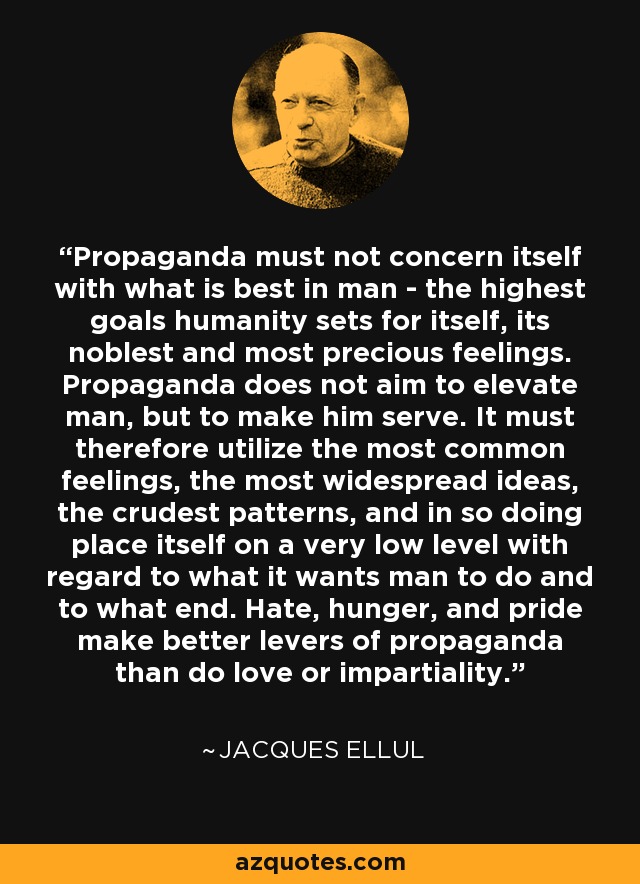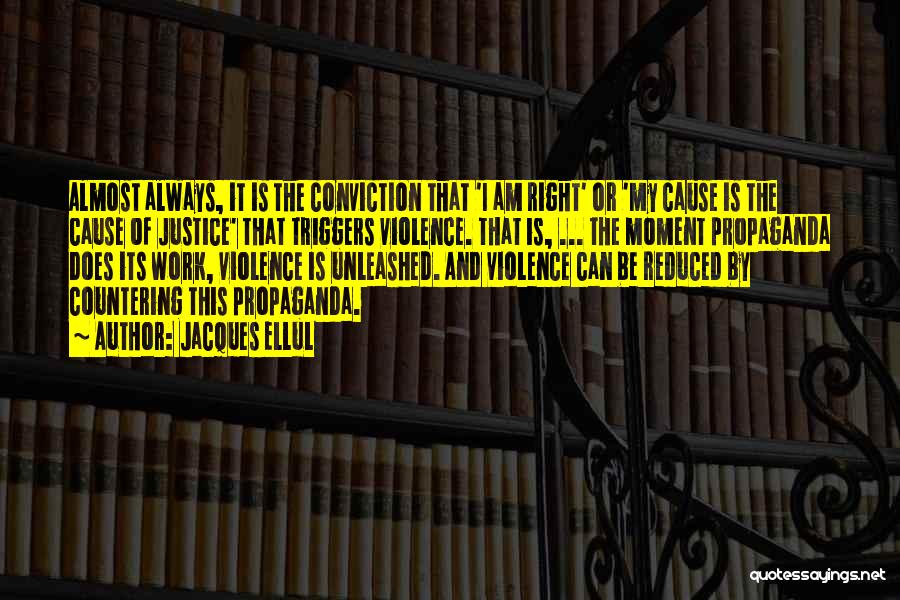


Goals are determined by the government, party, administration or pressure group. The context and goals of such propaganda are political in nature.

Political propaganda includes the influence technologies used by the government, party, and administration with the intention of changing the behavior of society. He knows what the goal is to be achieved and what actions must be performed, so he alternates the variety of tools with which the desired action is provided. “If the classic, but outdated view of propaganda insists on defining it as a person’s commitment to orthodoxy, then modern propaganda, on the contrary, seeks orthopraxia - actions, by themselves, and not because of the value judgments of the acting person that directly leads to the goal, not which is conscious for the individual, but considered as such a propagandist. In classical propaganda models, propaganda was thought to be aimed at forming opinions. In addition, the French sociologist expresses the idea that modern propaganda works with the crowd and the individual at the same time, which does not lead to the formation of opinions, but directly to concrete actions. The “scientific” nature of propaganda means that it is closely connected with sociology and psychology. Jacques Elloule also says that science plays a big role in propaganda: the existence of propaganda is determined by the context of the modern scientific system. Propaganda ends where regular dialogue begins. “In order to be effective, propaganda cannot be carried away by particulars - and not only because it will take too long to win people to one’s side, but also for this reason: it is very difficult to form the views of an isolated individual. According to Ellul, the main goal of the propagandist is to create the illusion of the absence of any influence, and this can be achieved with the help of total propaganda: Thus, he believed that propaganda was necessary for democratic systems, not totalitarian ones, since the latter used different methods of manipulating society.

In addition, in his work, the French philosopher presented original ideas that had not previously been expressed by other researchers. “Propaganda is a set of methods used by an organized group that wants to achieve active or passive participation in their actions of a mass of individuals united by psychological manipulations and incorporated into the organization.” In the book, Jacques Ellul gives the following definition of propaganda:


 0 kommentar(er)
0 kommentar(er)
